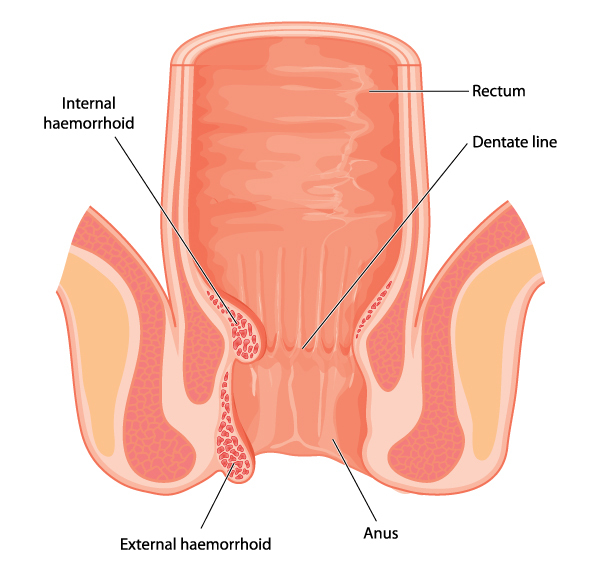
Piles / Hemorrhoids
Piles can occur in either the internal or external part of rectum and cause symptoms such as pain, itching, bleeding, and swelling. Without treatment, piles can lead to complications such as thrombosis and prolapse. Treatment options include lifestyle changes, over-the-counter medications, minimally invasive procedures and surgery.
Internal Piles / Hemorrhoids
Internal piles are a type of hemorrhoid that develop inside the rectum.
Symptoms of internal piles:
- Painless rectal bleeding during bowel movements
- A protrusion or bulge from the rectum during bowel movements
- Mucus discharge from the anus
Internal piles can range from small, swollen veins to larger, more serious conditions. In severe cases, internal piles can become prolapsed, meaning they slip out of place, causing discomfort and pain.
External Piles / Hemorrhoids
External piles are a type of hemorrhoid that develop outside the anus.
Symptoms of external piles:
- Pain or discomfort, especially during bowel movements
- Itching or burning sensation around the anus
- Swelling or a hard lump near the anus
- Bleeding during bowel movements
External piles can range from small, swollen veins to larger, more serious conditions. In severe cases, external piles can become thrombosed, meaning a blood clot has formed inside the pile, causing severe pain and swelling.